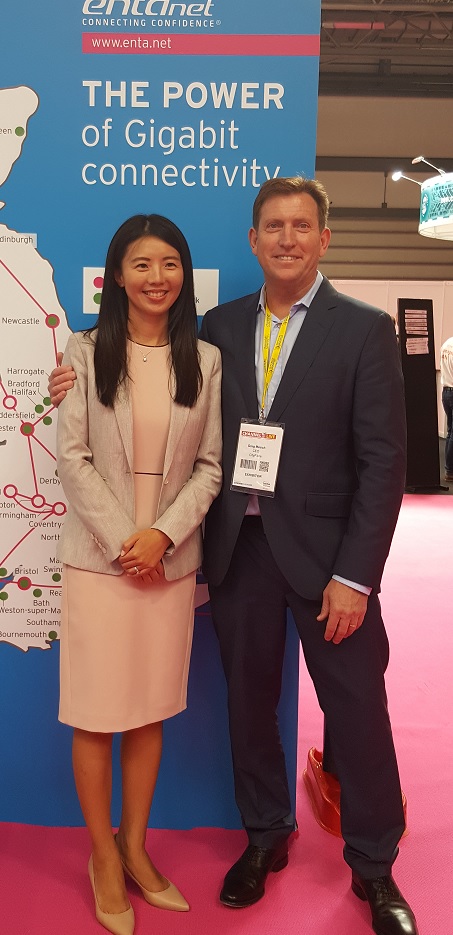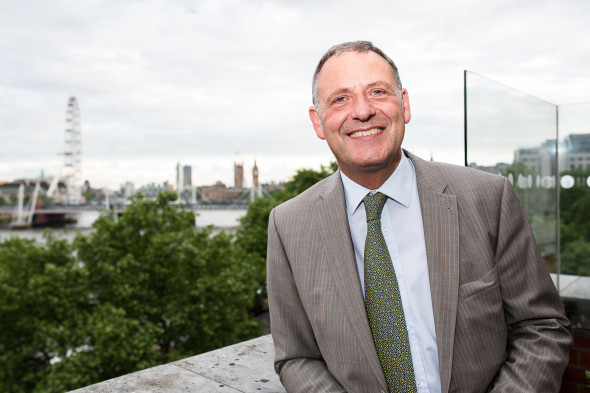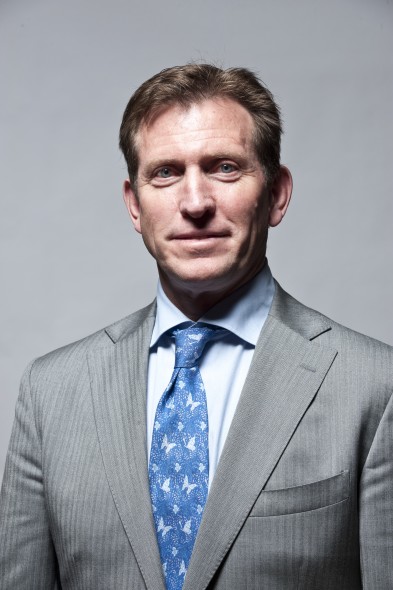
Back in early September the Channel convened for the highly anticipated Channel Live exhibition to find out the latest trends in the market and network with vendors, distributors and partners across the comms, IT and mobile markets. During the event, Chris Pateman, CEO of FCS, led a head to head with Openreach and CityFibre and explored some of the major issues impacting Channel Partners today. Here, we take a look at a few snippets from the session.
 Chris Pateman
Chris PatemanChris Pateman (CP): The Channel has been looking for competition for a very long time, their biggest concern and one of the biggest issues we’re finding when we were talking about what the future of Openreach should look like, is that you need to have an opportunity to switch suppliers if your existing supplier lets you down. But you can only buy connectivity from people who are not Openreach in very discrete parts of the country. So, what does the utility/wholesale pattern look like going forward?
Greg Mesch, CEO, CityFibre (GM): For us, I hope history repeats. Three years ago, CityFibre was across three cities and had market capitalisation of £16 million. Today we’re across 42 cities and have raised £500million of invested capital, which has all gone into growing our infrastructure. At that rate if we keep moving we’ll have a full 100 cities covered with our infrastructure in a short period of time. And then that infrastructure will continually spread.
We think of it as a symbiotic relationship with Openreach. We’re not thinking of ourselves as David to Goliath, we’re thinking of serving the channels and where the future is. That future is in a foundation of digital infrastructure that powers the UK’s service based economy.
CP: From your point of view Richard, you’ve got network everywhere, some of it is not fibre, in fact quite a lot of it is not fibre. What plan do you have and how much of what Greg said do you agree with?
 Greg Mesch
Greg MeschRichard Allwood, Chief Strategy Officer, Openreach (RA): We are under no illusion about the critical role that broadband infrastructure plays in the UK as a whole. This is increasingly integral to people’s everyday personal and professional lives. I completely echo the passion that Greg expresses and it’s critical that we get this right for the UK. It’s fundamental to our economy and increasingly fundamental to participating in modern life from today, through to 2020. It’s that important! That really points to the question of coverage as well, because as I look to the future we’ve got to find ways of getting good and brilliant broadband infrastructure out to lots of parts the country including cities big and small. If you listen to the Government and look at the postbag of complaints that we have on service levels, the fact that we’ve got good superfast broadband out to 95% of the UK is still 5% short of good enough. So, we must think of ways to address that last 5%.
The next question is how we fundamentally upgrade the quality of the infrastructure we’ve got, not to just enable faster speeds, but to deliver a more reliable, unbreakable and predictable service, so people know what they going to get. There are two routes we’re exploring within Openreach: G.Fast and the delivery of FTTP. We’re very excited about FTTP. As I look to the future I see FTTP playing a very important role, yes in the cities, but also in some rural areas as well, because it may be the only solution capable of getting people a good enough broadband service.
CP: What are the big things the channel should be doing now to capitalise on the investment you’re making and help create the kind of environment in which you can cost justify future investment?
GM: Fundamentally, we are here because of the Channel. We wouldn’t be here if they hadn’t moved. What people don’t often realise about CityFibre is that the revenue stream for what we do already exists. It’s the same money that is being given to Openreach from the Channel, and there’s enough there to justify and overbuild of a complete full fibre network infrastructure. All we need to do is move that revenue stream from a supplier (which has an economic model that doesn’t necessarily encourage it to invest because of earnings per share, dividends and the ownership structure) to a challenger where that same revenue that you’re spending on existing infrastructure, which is inferior, could actually anchor the build of something superior.
The Channel has a critical role in exercising choice, without choice it’s stuck and only has what is supplied to them. I would say that one of the reasons we’re having this debate today and that the [Openreach] consultation exists is because for six years we’ve been lobbying the Government and Ofcom. It’s the sheer existence of competition at a wholesale level that enables Channel Partners to start to shift revenue streams from where it was going to somewhere else. It means we can build an infrastructure that is fit for purpose for the next 100 years based off the current revenue stream that exists.
The Openreach consultation wants an incremental revenue stream to justify upgrading the network. We want the existing revenue stream that the Channel Partners are already giving to be diverted into a new purpose-built infrastructure. Hence the fibre to the tower roll out model we did for Three UK and EE where we said “we’ll take the same money you pay to service providers today and we’ll build you a custom-based dark fibre network that will increase bandwidth performance of your cell sites by what turned out to be 340%. The same economics, moved across, so the Channel Partner moved the money to someone else and got something new. The same formula existed in York where we did a trial and said “for the same money you pay for FTTC or LLU to Openreach, shift that money and we’ll build you fibre to every single home”, and it worked. They worried that there would be no take-up but 40% shifted, 40% said “I really like that it runs better, it’s superfast, it never goes down, it’s symmetrical, and there’s no latency.” It is the purist form of digital infrastructure.
RA: I don’t agree with the characterisation of the FTTP investment from an Openreach perspective, or from a BT Group perspective. I think it’s pretty simple, if we’re going to deploy FTTP then it costs a lot of money and therefore it’s got to make sense to get customers onto that platform as quickly as possible so we can maximise the benefit from it, otherwise what’s the point of doing it. People have got to benefit more otherwise they’ll just carry on using the existing platform.
I think those incremental benefits can take many forms, it could be a radically simpler and lower cost platform, it could be about unlocking new services which end customers and Channel Partners are happy to pay additional money for because it’s better. So, it’s not just about generating incremental revenue on top of what already exists, it’s about incremental value through simple and cost-effective solutions for Channel Partners, for Openreach and for wholesale providers.
I think the categorisation and what the economics look like is very different, but the role of the Channel is critical. The Channel sells the infrastructure we provide, you are our route to market. We need to understand from you where demand is and when it’s critical. We need you to be taking customers on the journey from the copper or hybrid copper fibre infrastructure to a full fibre infrastructure by explaining the benefits of that. And I think there is lots of opportunity for the Channel in that respect to upsell and create additional value.
GM: I think that is clear and I absolutely agree with everything you say, but CityFibre is not trying to take 100% of Openreach’s share. Openreach should certainly do their journey and do a conversion from copper to full fibre. What’s essential is that we don’t go from a period where channel Partners have a choice of one to a choice of one again. The fundamental thesis that we have in CityFibre is that we should be a challenger network that provides at least twenty percent of the UK, 5 million premises, in X number of cities. We’re aligning with those cities with our core infrastructure already because having choice and having that competitive environment will help to improve Openreach’s services, bring down its costs and improve the overall quality that service providers get. Without choice, you’re left with just complaints.
